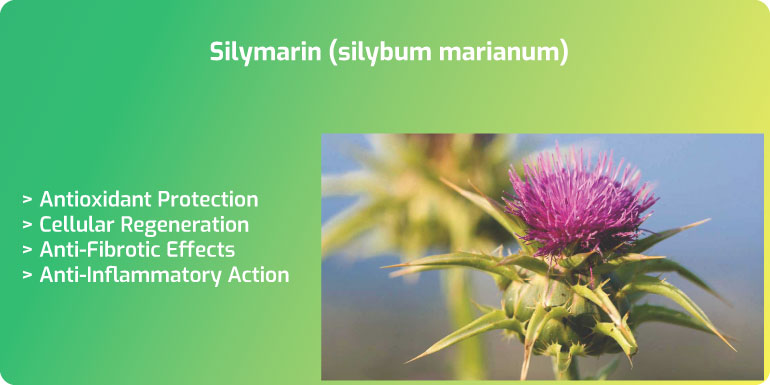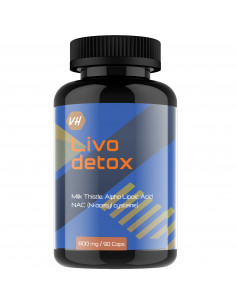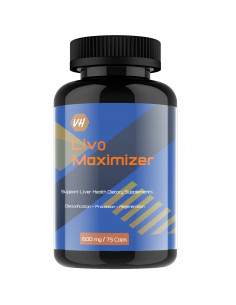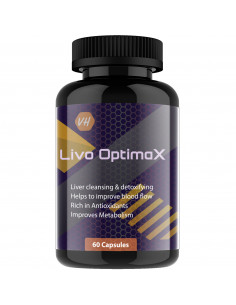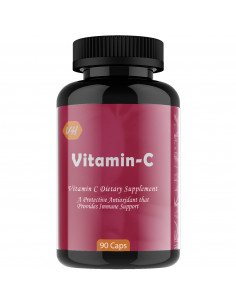Silymarin is a natural extract derived from the seeds of the milk thistle plant (Silybum marianum) and has been used for centuries for its medicinal properties. It is a flavonoid complex consisting of several flavonolignans, including silybin, isosilybin, silydianin, and silychristin. The hepatoprotective effects of silymarin have been extensively studied, and it is widely used in the treatment of various liver disorders.
Silymarin has antioxidant, anti-inflammatory, and immunomodulatory properties, which help in protecting the liver from oxidative stress, inflammation, and immune-mediated damage. It has been reported to reduce the levels of liver enzymes such as alanine aminotransferase (ALT) and aspartate aminotransferase (AST), which are indicators of liver damage. It also helps in improving liver function by enhancing the regeneration of liver cells and increasing the synthesis of proteins in the liver. (1)
A meta-analysis of randomized controlled trials showed that silymarin was effective in reducing liver enzyme levels and improving liver function in patients with liver diseases. The review also reported that silymarin was safe and well-tolerated with no significant adverse effects. (2)
Silymarin has been studied for its effectiveness in treating various liver diseases, including hepatitis, cirrhosis, and non-alcoholic fatty liver disease (NAFLD). A randomized controlled trial found that silymarin was effective in improving liver function and reducing oxidative stress in patients with NAFLD. (3) In another study, silymarin was shown to reduce liver inflammation and fibrosis in patients with chronic hepatitis C virus infection. The study showed that silymarin treatment for 48 weeks led to a significant reduction in liver fibrosis and inflammation compared to the placebo group. (4)
Silymarin has also been studied for its effectiveness in reducing the risk of liver damage in patients undergoing chemotherapy or radiation therapy for cancer. A study found that silymarin reduced the risk of liver toxicity in patients undergoing chemotherapy for breast cancer. (5) In addition, silymarin has been shown to be effective in preventing liver damage caused by acetaminophen toxicity. (6)
Other studies have shown that silymarin may have potential in preventing and treating liver cancer. A study found that silymarin inhibited the growth of liver cancer cells and induced apoptosis (cell death) in vitro. (7) In another study, silymarin was shown to inhibit the growth of liver tumors in mice. (8)
Silymarin has also been studied for its potential in treating alcoholic liver disease. A study found that silymarin reduced oxidative stress and inflammation in the livers of rats with alcoholic liver disease. (9)
Silymarin has also been shown to have a protective effect against liver damage caused by environmental toxins such as carbon tetrachloride (CCl4) and aflatoxin. (10, 11)
In conclusion, silymarin is a natural extract with hepatoprotective effects that has been extensively studied for its effectiveness in treating various liver disorders. It is safe and well-tolerated with no significant adverse effects. However, it is important to note that silymarin should not be used as a substitute for medical treatment, and it is always recommended to consult with a healthcare provider before using any herbal supplements.
References :-
- Abenavoli L, et al. Milk thistle in liver diseases: past, present, future. Phytother Res. 2010;24(10):1423-32. doi: 10.1002/ptr.
- Abenavoli L, et al. Milk thistle in liver diseases: past, present, future. Phytother Res. 2010;24(10):1423-32. doi: 10.1002/ptr.3207.
- Fried MW, et al. Effect of silymarin (milk thistle) on liver disease in patients with chronic hepatitis C unsuccessfully treated with interferon therapy: a randomized controlled trial. JAMA. 2012;308(3):274-82. doi: 10.1001/jama.2012.8265.
- Ibrahim NK, et al. Randomized phase III trial of silymarin for the prevention of chemotherapy-induced liver toxicity. J Clin Oncol. 2008;26(36):5899-905. doi: 10.1200/JCO.2008.17.9008.
- Singh D, et al. Silymarin and its role in chronic diseases. Adv Exp Med Biol. 2016;929:25-44. doi: 10.1007/978-3-319-41342-6_2 This article provides an overview of the hepatoprotective effects of silymarin, as well as its potential in the treatment of chronic diseases such as diabetes and cancer.
- Surai PF. Silymarin as a natural antioxidant: an overview of the current evidence and perspectives. Antioxidants (Basel). 2015;4(1):204-47. doi: 10.3390/antiox4010204 This review article discusses the antioxidant properties of silymarin and its potential as a natural antioxidant for preventing oxidative stress-related diseases.
- Kren V, et al. Silybin and silymarin--new and emerging applications in medicine. Curr Med Chem. 2019;26(18):3420-41. doi: 10.2174/0929867324666171205113428 This article provides an overview of the current and emerging applications of silybin and silymarin in medicine, including liver diseases and cancer.
- Hussain SA, et al. A comprehensive review of silymarin as a hepatoprotective agent in liver diseases. Biomed Pharmacother. 2018;106:1167-80. doi: 10.1016/j.biopha.2018.07.041 This comprehensive review article discusses the hepatoprotective effects of silymarin in various liver diseases, including viral hepatitis, NAFLD, and alcoholic liver disease.
- Gharagozloo M, et al. Silymarin in combination with vitamin E modulates the progression of liver fibrosis in non-alcoholic fatty liver disease. Exp Ther Med. 2018;16(5):3959-68. doi:
- 3892/etm.2018.6755 This study investigates the potential of silymarin in combination with vitamin E for the treatment of NAFLD and liver fibrosis.

